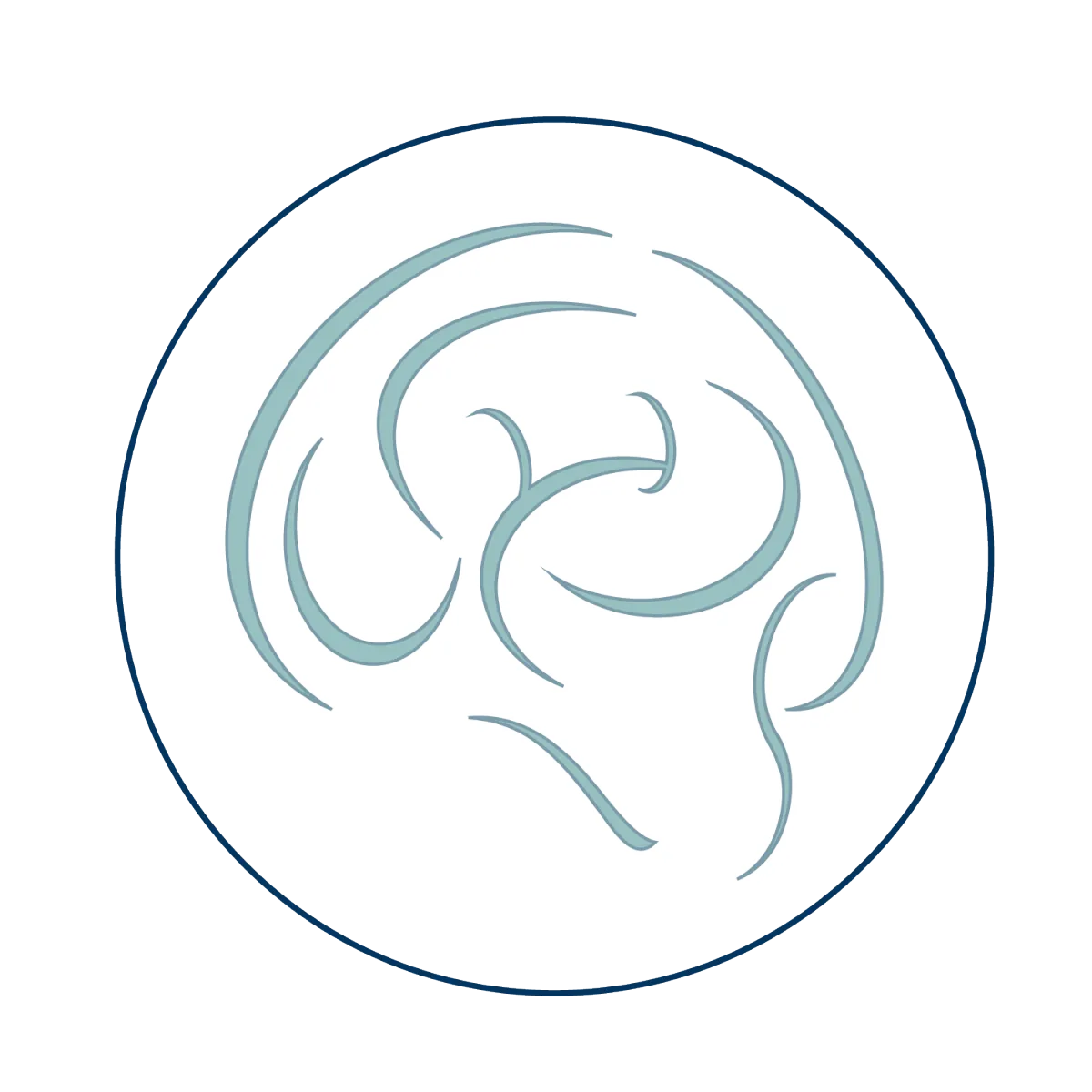Welcome to the Brain & Faith Blog
This is where neuroscience and Scripture meet to bring clarity, calm, and confidence into everyday life. From brain health tips and faith-based practices to practical support for parents of young athletes, you’ll find simple, actionable steps to strengthen your mind, nurture your spirit, and guide your family toward lasting peace and resilience.

Feeding Your ADHD Brain: The Role of Nutrition in Managing Symptoms
If you're managing ADHD - whether your own or your child's - you've probably wondered whether diet makes a difference. The answer is a resounding yes. While nutrition isn't a cure for ADHD, research shows that what you eat can significantly impact attention, focus, impulse control, and emotional regulation. For women juggling their own ADHD symptoms while potentially managing ADHD children, understanding the connection between food and brain function can be a game-changer in your daily life.
The ADHD Brain and Nutrition Connection
The ADHD brain has unique nutritional needs due to differences in neurotransmitter function, particularly dopamine and norepinephrine. These brain chemicals are crucial for attention, motivation, and impulse control, and their production and function can be significantly influenced by diet.
How Nutrition Affects ADHD Symptoms
Neurotransmitter Production: Many neurotransmitters are made from amino acids found in protein. Without adequate protein intake, the brain struggles to produce the chemicals needed for optimal function.
Blood Sugar Regulation: Blood sugar fluctuations can dramatically worsen ADHD symptoms. When blood sugar drops, the brain doesn't have the steady fuel it needs for sustained attention and emotional regulation.
Inflammation and Brain Function: Chronic inflammation can worsen ADHD symptoms by affecting brain function and neurotransmitter balance. Certain foods promote inflammation while others reduce it.
Nutrient Deficiencies: People with ADHD are more likely to have deficiencies in specific nutrients that are crucial for brain function, including iron, zinc, magnesium, and omega-3 fatty acids.
Key Nutrients for ADHD Management
Protein: The Foundation of Focus
Why It Matters: Protein provides the amino acids needed to produce dopamine and norepinephrine, the neurotransmitters most affected in ADHD.
Research Evidence: Studies show that higher protein intake, especially at breakfast, can improve attention and reduce hyperactivity throughout the day.
Best Sources:
Complete Proteins: Eggs, fish, poultry, lean meats, dairy products
Plant-Based Options: Quinoa, hemp seeds, chia seeds, legume combinations
Quick Options: Greek yogurt, nuts and seeds, protein smoothies
Practical Application:
Aim for 20-30 grams of protein at breakfast
Include protein in every meal and snack
Consider protein powder for quick options
Pack protein-rich snacks for sustained energy
Omega-3 Fatty Acids: Brain Building Blocks
Why They're Crucial: Omega-3s are essential for brain structure and function, particularly EPA and DHA. They help reduce inflammation and support neurotransmitter function.
Research Findings: Multiple studies show that omega-3 supplementation can improve attention, reduce hyperactivity, and enhance cognitive function in people with ADHD.
Best Sources:
Fatty Fish: Salmon, mackerel, sardines, anchovies (2-3 times per week)
Plant Sources: Flaxseeds, chia seeds, walnuts, hemp seeds
Supplements: High-quality fish oil or algae-based omega-3s
Dosage Considerations:
Adults: 1-2 grams combined EPA/DHA daily
Children: 500mg-1gram daily (consult healthcare provider)
Look for third-party tested supplements
Take with meals to improve absorption
Iron: The Energy Mineral
The ADHD Connection: Iron deficiency is more common in people with ADHD and can worsen symptoms of inattention and restlessness.
How It Helps: Iron is crucial for dopamine production and oxygen transport to the brain.
Best Sources:
Heme Iron (easily absorbed): Red meat, poultry, fish
Non-Heme Iron: Spinach, lentils, tofu, fortified cereals
Absorption Enhancers: Vitamin C-rich foods (citrus, berries, bell peppers)
Important Notes:
Get iron levels tested before supplementing
Too much iron can be harmful
Combine iron-rich foods with vitamin C for better absorption
Avoid iron supplements with calcium or coffee
Zinc: The Attention Mineral
Research Evidence: Zinc deficiency is common in ADHD and supplementation has been shown to improve symptoms, particularly when combined with conventional treatment.
How It Works: Zinc is involved in dopamine metabolism and helps regulate neurotransmitter function.
Food Sources:
Oysters, beef, pumpkin seeds, chickpeas
Cashews, yogurt, cheese, eggs
Dark chocolate (in moderation)
Supplementation:
Typical dose: 15-30mg daily for adults
Take with food to avoid stomach upset
Balance with copper (zinc can deplete copper)
Magnesium: The Calming Mineral
Why It Matters: Magnesium deficiency is common in ADHD and can contribute to hyperactivity, anxiety, and sleep problems.
Benefits: Magnesium helps calm the nervous system, improve sleep quality, and support cognitive function.
Best Sources:
Dark leafy greens, nuts and seeds, whole grains
Dark chocolate, avocados, bananas
Epsom salt baths for topical absorption
Supplementation:
Magnesium glycinate or citrate are well-absorbed forms
Start with 200-400mg daily
Take in evening for sleep benefits
B Vitamins: The Energy Team
The ADHD Connection: B vitamins are crucial for neurotransmitter production and energy metabolism. Deficiencies can worsen ADHD symptoms.
Key B Vitamins:
B6: Needed for dopamine and serotonin production
B12: Essential for brain function and energy
Folate: Important for neurotransmitter synthesis
Thiamine (B1): Crucial for glucose metabolism in the brain
Food Sources:
Whole grains, leafy greens, eggs, fish
Nutritional yeast, legumes, avocados
Consider a high-quality B-complex supplement
Foods That Help ADHD Symptoms
Complex Carbohydrates
Why They Help: Complex carbs provide steady glucose to the brain and help with serotonin production, which can improve mood and focus.
Best Choices:
Oats, quinoa, brown rice, sweet potatoes
Whole grain bread and pasta
Legumes and beans
Timing: Include complex carbs at meals to maintain steady blood sugar.
Antioxidant-Rich Foods
The Benefit: Antioxidants protect the brain from oxidative stress and inflammation, which can worsen ADHD symptoms.
Top Sources:
Berries (blueberries, strawberries, blackberries)
Dark leafy greens (spinach, kale, arugula)
Colorful vegetables (bell peppers, carrots, beets)
Green tea, dark chocolate (in moderation)
Fermented Foods
Gut-Brain Connection: The gut microbiome influences brain function and mood. Fermented foods support healthy gut bacteria.
Best Options:
Yogurt with live cultures, kefir, sauerkraut
Kimchi, miso, tempeh
Consider a high-quality probiotic supplement
Foods That Can Worsen ADHD Symptoms
Refined Sugar and Simple Carbs
The Problem: Refined sugars cause rapid blood sugar spikes followed by crashes, which can worsen attention problems and mood swings.
Foods to Limit:
Candy, cookies, pastries, sugary drinks
White bread, white rice, processed cereals
Fruit juices (even 100% juice)
Better Alternatives:
Fresh fruit with protein or healthy fat
Whole grain options
Naturally sweetened treats in moderation
Artificial Additives
Research Findings: Some studies suggest that artificial colors, flavors, and preservatives may worsen hyperactivity in sensitive individuals.
Common Culprits:
Artificial food dyes (Red 40, Yellow 5, Blue 1)
Artificial flavors and sweeteners
Preservatives like BHA, BHT, sodium benzoate
Reading Labels: Choose foods with minimal, recognizable ingredients.
Excessive Caffeine
The Double-Edged Sword: While small amounts of caffeine might help some people with ADHD, too much can increase anxiety and interfere with sleep.
Guidelines:
Limit to 1-2 cups of coffee or tea daily
Avoid energy drinks and high-caffeine sodas
Stop caffeine intake 6-8 hours before bedtime
High-Mercury Fish
The Concern: High mercury levels may worsen ADHD symptoms and affect cognitive function.
Fish to Limit: Shark, swordfish, king mackerel, tilefish
Better Choices: Salmon, sardines, anchovies, smaller fish
Meal Planning for ADHD Success
The ADHD-Friendly Plate
Protein (1/4 of plate): Lean meats, fish, eggs, legumes, nuts
Complex Carbs (1/4 of plate): Whole grains, sweet potatoes, quinoa
Vegetables (1/2 of plate): Variety of colors, including leafy greens
Healthy Fats: Avocado, olive oil, nuts, seeds
Timing and Frequency
Regular Meal Schedule: Eating at consistent times helps maintain stable blood sugar and neurotransmitter levels.
Meal Frequency:
Three balanced meals plus 1-2 protein-rich snacks
Don't skip breakfast - it's crucial for ADHD management
Avoid going more than 3-4 hours without eating
Breakfast: The Most Important Meal
Why It Matters: A protein-rich breakfast can improve attention and behavior throughout the day.
ADHD-Friendly Breakfast Ideas:
Eggs with whole grain toast and avocado
Greek yogurt with berries and nuts
Protein smoothie with spinach and fruit
Oatmeal with protein powder and nut butter
Smart Snacking
Purpose: Maintain steady blood sugar between meals and provide brain fuel.
Best Snack Combinations:
Apple slices with almond butter
Greek yogurt with berries
Hummus with vegetables
Hard-boiled egg with whole grain crackers
Trail mix with nuts and seeds (minimal dried fruit)
Elimination Diets and Food Sensitivities
The Feingold Diet
What It Is: An elimination diet that removes artificial colors, flavors, preservatives, and certain natural compounds (salicylates).
Research: Some studies show improvements in hyperactivity for sensitive individuals.
Implementation: Work with a healthcare provider to ensure nutritional adequacy.
Gluten-Free Considerations
The Connection:Some people with ADHD may have gluten sensitivity, which can worsen symptoms.
Who Might Benefit: Those with digestive issues, family history of celiac disease, or who don't respond well to other interventions.
Important Note: Gluten-free doesn't automatically mean healthier - focus on whole, unprocessed foods.
Food Sensitivity Testing
Approaches:
Elimination diet followed by systematic reintroduction
IgG food sensitivity testing (controversial but may provide insights)
Work with a qualified healthcare provider
Common Triggers: Dairy, gluten, soy, eggs, nuts, artificial additives
Practical Implementation Strategies
Meal Prep for ADHD Families
Weekly Planning:
Choose one day for meal planning and grocery shopping
Prep proteins, vegetables, and grains in batches
Use slow cooker or instant pot for easy meals
Keep emergency meals on hand (frozen healthy options)
ADHD-Friendly Prep Tips:
Use visual meal planning boards
Prep snack portions in advance
Keep healthy options visible and accessible
Use timers and reminders for meal times
Supplements: When and What
When to Consider Supplements:
Difficulty meeting nutritional needs through food alone
Confirmed nutrient deficiencies
Under guidance of healthcare provider
Quality Matters:
Choose third-party tested supplements
Look for pharmaceutical-grade quality
Avoid mega-doses without professional guidance
Consider timing and interactions with medications
Basic ADHD Supplement Protocol (consult healthcare provider):
High-quality multivitamin/mineral
Omega-3 fatty acids (EPA/DHA)
Magnesium
Vitamin D (if deficient)
Probiotic
Working with Healthcare Providers
Building Your Team:
Registered dietitian familiar with ADHD
Functional medicine practitioner
Primary care physician or psychiatrist
Consider working with an ADHD coach
What to Discuss:
Current symptoms and challenges
Dietary patterns and preferences
Nutrient testing results
Supplement interactions with medications
Realistic implementation strategies
Special Considerations
ADHD Medications and Appetite
Common Issue: Stimulant medications often suppress appetite, making adequate nutrition challenging.
Strategies:
Focus on nutrient-dense foods when appetite is present
Consider protein shakes or smoothies
Time larger meals when medication effects are lower
Monitor growth in children
Discuss timing adjustments with prescriber
Emotional Eating and ADHD
The Connection: ADHD can contribute to emotional eating, impulsive food choices, and difficulty recognizing hunger/fullness cues.
Helpful Approaches:
Practice mindful eating techniques
Keep trigger foods out of easy reach
Plan satisfying meals and snacks
Address emotional needs through non-food strategies
Consider therapy for eating-related challenges
Budget-Friendly ADHD Nutrition
Cost-Effective Strategies:
Buy frozen vegetables and fruits
Purchase proteins in bulk and freeze portions
Use dried beans and lentils
Shop seasonal produce
Consider generic supplements
Focus on whole foods over processed options
A Faith-Based Perspective on Nourishment
As you consider how to nourish your ADHD brain, remember that your body is a temple of the Holy Spirit (1 Corinthians 6:19-20). Caring for your physical health through proper nutrition is an act of stewardship and worship.
God has provided an abundance of foods that can support brain health and ADHD management. When you choose to fuel your body with nutrients that support optimal brain function, you're partnering with Him in caring for the mind He's given you.
This doesn't mean striving for perfection or feeling guilty about food choices. Instead, it's about making informed decisions that honor both your body and your unique needs. Remember that small, consistent changes often have more impact than dramatic overhauls that are difficult to maintain.
Moving Forward with Practical Steps
Implementing nutritional changes for ADHD doesn't have to be overwhelming. Start with one or two changes and build from there:
Week 1-2: Focus on eating protein at every meal
Week 3-4: Add omega-3 rich foods 2-3 times per week
Week 5-6: Reduce refined sugars and processed foods
Week 7-8: Incorporate more vegetables and antioxidant-rich foods
Remember that everyone's nutritional needs are different, and what works for one person may not work for another. Pay attention to how different foods affect your symptoms and energy levels, and adjust accordingly.
Key Takeaways:
Nutrition significantly impacts ADHD symptoms
Focus on protein, omega-3s, and key minerals
Maintain stable blood sugar through regular, balanced meals
Consider working with healthcare providers for personalized guidance
Make gradual changes for sustainable results
For more strategies on supporting brain health through lifestyle choices, explore our Food for Thought guide. If you're ready for personalized support in optimizing nutrition for ADHD management, consider a free clarity call.
Brain Health Matters, LLC
Helping busy minds find peace through faith and neuroscience.
© 2025 Brain Health Matters, LLC. All rights reserved.
Terms & Conditions

